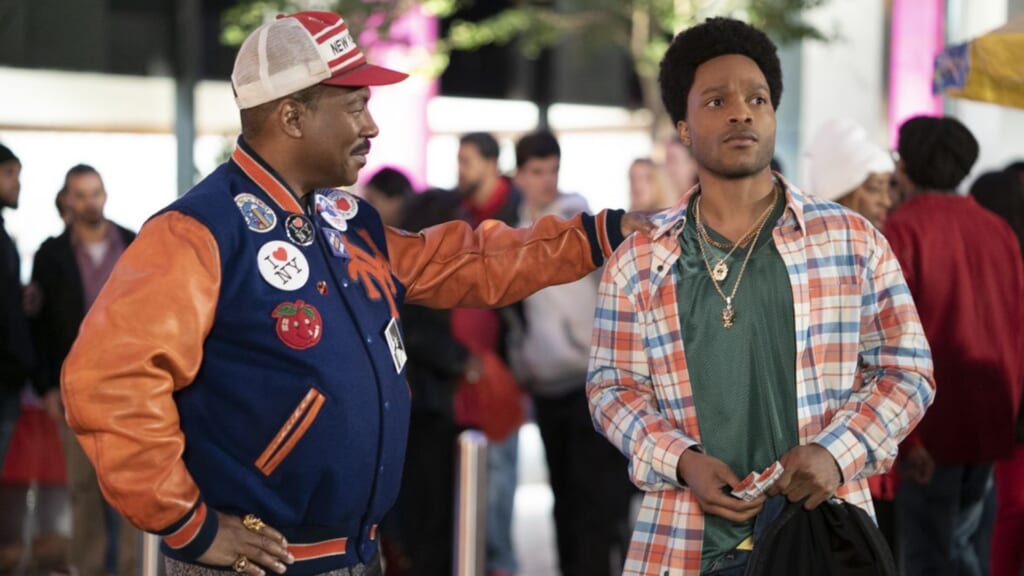Undervaluing Black projects cost studios $10B annually, study finds
A new report says that Hollywood needs to do more work to have equal and diverse representation in front of and behind the camera.
According to a study conducted by McKinsey & Company, Hollywood studios actually lose money when they avoid Black and diverse projects.
Read More: Hollywood hits HFPA with #TimesUpGlobes over no Black members
As Deadline reported, to arrive at its conclusion, the company studied data from more than 2,000 films and interviewed dozens of industry professionals, including writers, directors, producers, agents, actors, and executives.
McKinsey & Company partnered with BlackLight Collective, which is described as “a coalition of Black executives and talent in the industry,” and includes Franklin Leonard of The Black List. Since 2005, The Black List releases a yearly list after taking a survey of the most liked unproduced screenplays of that year.
The results of the study found that Hollywood has the potential to gain an additional $10B in annual revenues if studios addressed racial inequalities and created opportunities for Black-led projects. According to Deadline, McKinsey found that Black-led projects are consistently underfunded and passed over, despite their proven success.

The data found that within their first 10 years of professional work, emerging Black talent is only awarded an average of six leading roles, while their white counterparts get nine in the same time frame. Behind the scenes, less than 6% of Hollywood’s writers, directors, and producers are Black, and according to the report, that number has not improved over the past 15 years. 87% of TV executives and 92% of film executives are white and executive staff at the industry’s top three talent agencies are about 90% white.
McKinsey also referenced the “Black tax” which according to Deadline can be literal or metaphorical, but an actual extra fee that Black creators have to fight against or pay in order to see success.
Read More: DeWanda Wise talks importance of being surrounded by powerful Black women in Hollywood
Oscar, Emmy and Tony-winning actress Viola Davis spoke out about the study’s findings on social media, calling for change from the top.
“The big C has to enter these rooms. That’s courage….which is just, ‘Fear said with prayers,’ she shared on Twitter. “Moving the inclusion narrative forward can’t just be on the artists on the periphery but the gatekeepers, studio execs…etc. It’s time for some hardcore conversations. Just sayin’….”
The Fences star has frequently used her platform to speak out against the racial bias prevalent in Hollywood. As the July 2020 cover star of Vanity Fair magazine, Davis spoke to the lack of roles for Black actresses compared to their white peers.
“There’s not enough opportunities out there to bring that unknown, faceless Black actress to the ranks of the known. To pop her!’ she remarked. “Fabulous white actresses (who have had) a wonderful role for each stage of their lives that brought them to the stage they are now. We can’t say that for many actors of color.”

According to the 2020 Hollywood Diversity Report released by UCLA, in 2018 and 2019, on-screen roles for women and minorities grew in numbers, however, jobs such as writers, and executives remain underrepresented.
“As of 2019, both women and minorities are within striking distance of proportionate representation when it comes to lead roles and total cast,” said Darnell Hunt, the report’s co-author. He is the dean of the UCLA College Division of Social Sciences. He continued, “But behind the scenes, it’s a very different story. That begs the question: Are we actually seeing systematic change, or is Hollywood just appealing to diverse audiences through casting, but without fundamentally altering the way studios do business behind the camera?”
Have you subscribed to theGrio’s new podcast “Dear Culture”? Download our newest episodes now!
TheGrio is now on Apple TV, Amazon Fire, and Roku. Download theGrio today!
More About:Entertainment Film









